Know more:
Fernanda Maria
(N. 6 February, 1937 - M. 13 January, 2025)Fernanda Maria was born in Socorro, Hospital de S. José, on February 6, 1937. Her father was a typographer and a very good fado singer. According to Fernanda Maria he taught her the rhythm and the love for fado.
Very young - at age 12/13 – she was working as a waitress at "Adega Patrício", owned by the fado singer Lina Maria Alves, and later moved to Argentina Santos’ fado house "Parreirinha de Alfama". It was there, in that very special place, that one of the greatest fado interpreters and symbol of the purest fado style was born.
Fernanda Maria felt the urge to sing and is encouraged to do so by the customers of the restaurants she works in. She finally finded her vocation. Alfredo Lopes convinces her to apply to Emissora Nacional. She passes her auditions and performs at the “Serão para Trabalhadores”, broadcasted from Voz do Operário.
In 1957 she got her professional licence and – apart from the Emissora Nacional programs – participated in several shows, as "Passatempo APA" at Cinema Éden, "Do Céu Caiu uma Estrela" at Ódeon, and "Comboio das 6h30" at Capitólio. One of the events she treasured the most are the variety shows held at Pavilhão dos Desportos and Coliseu dos Recreios.
She refused quite a few shows abroad due to family reasons but kept singing in several fado houses, as "A Severa", "Toca", "Nau Catrineta", and "Viela", until settling definitively at her own restaurant - "Lisboa à Noite", opened in 1964. She left the restaurant after her husband’s – Romão Martins – death. Some of the major names of fado appeared in her fado house: Manuel de Almeida, Manuel Fernandes, Tristão da Silva, Alice Maria, Maria da Fé, and Cidália Moreira, among others.
She recorded her first record when she was working at "A Severa" and later also had records released by Valentim de Carvalho and Alvorada.
The manager José Miguel invites her to join the cast of the Portuguese vaudeville play (Teatro de Revista) "Acerta o Passo" (1964) with Ivone Silva. This was, however, just a brief experience for Fernanda Maria had no fascination for this art and for the major stages.
Her performances were accompanied by great guitar players: Pais da Silva, Acácio Rocha, Jaime Santos, Carvalhinho, Martinho D´Assunção, Raul Nery, Fontes Rocha, and Joel Pina.
Fernanda Maria, a charismatic and peculiar voice, had great respect and admiration for Argentina Santos and Maria Teresa de Noronha and saw them as her role models. Her long repertoire encompasses poems by major poets as Linhares Barbosa, Nelson de Barros, Frederico de Brito, João Dias, and Carlos Conde, that resulted in great hits, namely "Não passes com ela à minha rua", by Carlos Conde, and "Zanguei-me com o meu amor" by Linhares de Barbosa.
The paramount of fado castiço, in 1963 Fernanda Maria was awarded the Prémio da Imprensa, in the Fado category, and in 2006 the Prémio Amália Rodrigues Carreira Feminina.
Source:
Museu do Fado – Interview done on November 14, 2006.
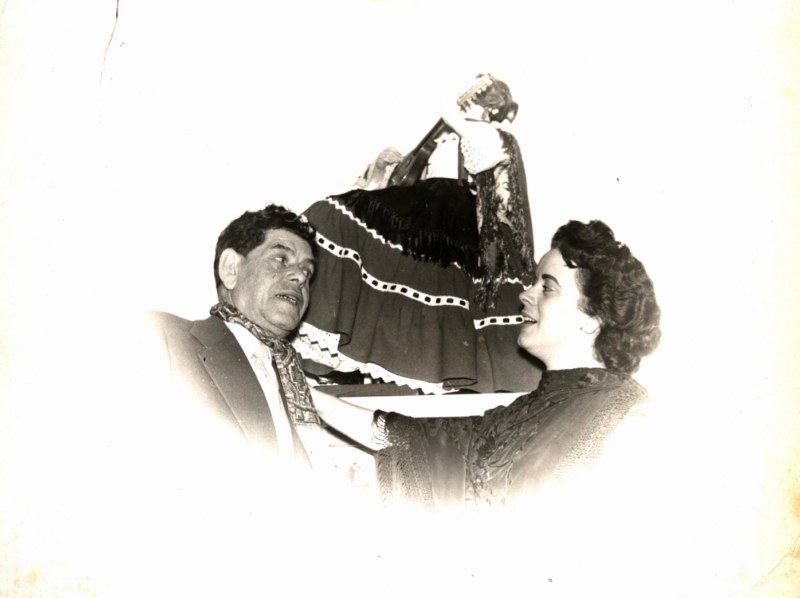
Alfredo Marceneiro, Fernanda Maria. Década de 1960
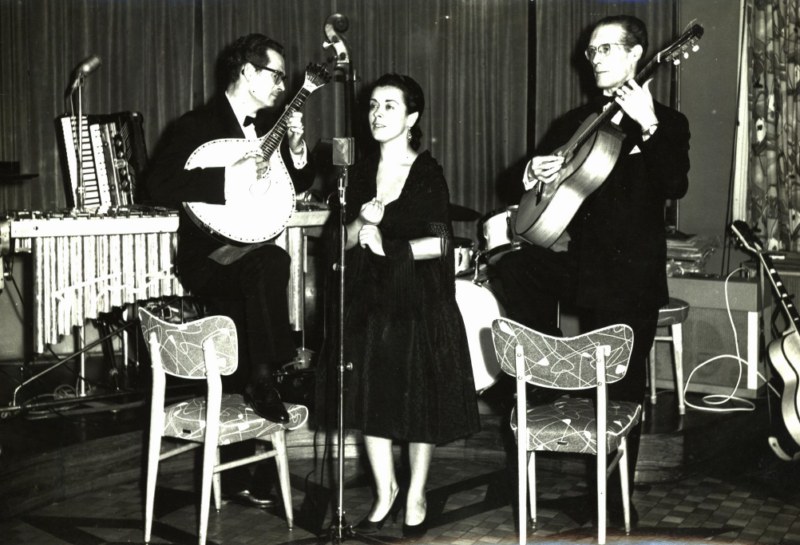
Adelino dos Santos, Fernanda Maria, Júlio Gomes,s/d.
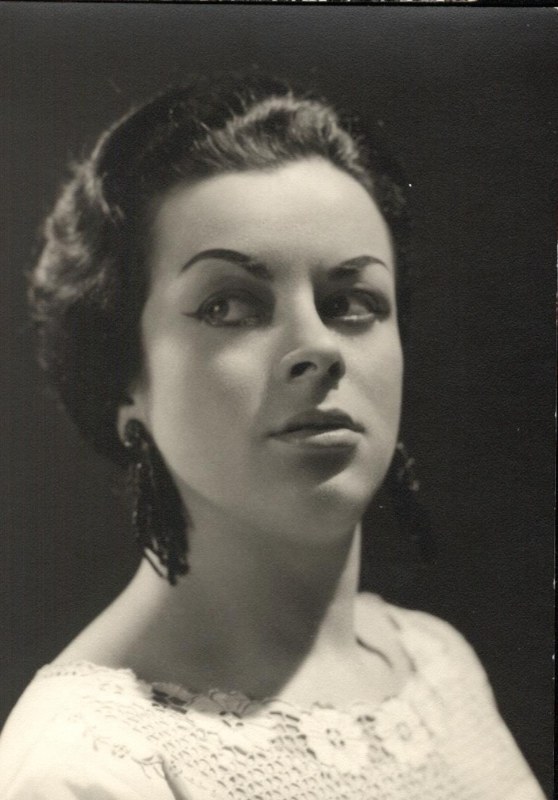
Fernanda Maria, s/d.
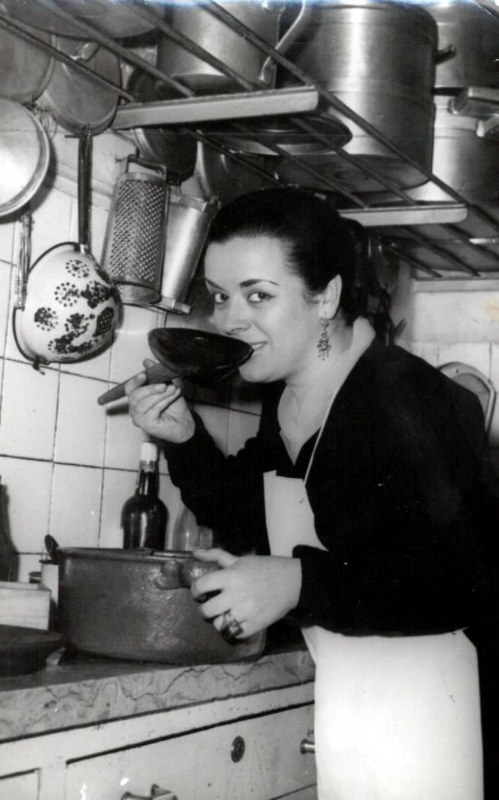
Fernanda Maria, s/d.
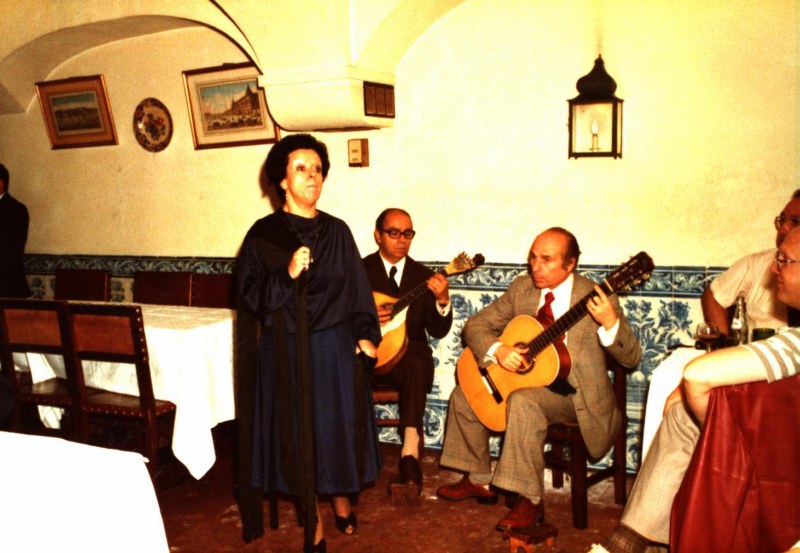
Domingos Camarinha, Fernanda Maria, Orlando Silva Lisboa à Noite, 1981
-
Não Passes Com Ela à Minha Rua Fernanda Maria (Carlos Conde / Miguel Ramos)
-
Júlia Florista Fernanda Maria (Joaquim Pimentel / Leonel Vilar, Joaquim Pimentel)